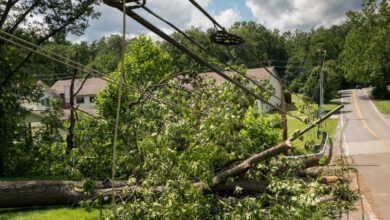2022 Tourism Spending Report is Out
 Last week, the Jackson County Tourism Development Authority unveiled a 3.5 percent uptick in visitor expenditures for the year 2022. Both domestic and international visitors exploring Jackson County contributed a total of $452.57 million to the local economy last year, marking a rise from the $437.41 million recorded in 2021.
Last week, the Jackson County Tourism Development Authority unveiled a 3.5 percent uptick in visitor expenditures for the year 2022. Both domestic and international visitors exploring Jackson County contributed a total of $452.57 million to the local economy last year, marking a rise from the $437.41 million recorded in 2021.
These figures are derived from an annual study commissioned by Visit North Carolina, and it’s worth noting that the resulting sales tax revenue plays a crucial role in bolstering Jackson County’s budget. These funds are allocated to support essential services such as parks and recreation, law enforcement, fire departments, housing services, emergency medical services, and more.
Visitors to Jackson County are drawn to its unique attractions, including the nation’s pioneering Fly-Fishing Trail, the state’s only Certified Forest Therapy Trail, as well as the stunning mountains, scenic hiking trails, waterfalls, and proximity to the Great Smoky Mountains National Park and the Blue Ridge Parkway.
Approximately one million visitors flock to Jackson County annually, with Charlotte accounting for 16.5 percent of the total visitors but contributing only 9.5 percent of the spending. In contrast, visitors from Atlanta, who tend to stay longer and spend on accommodations, constitute 9 percent of the overall visitors and contribute 11.4 percent of the total spending.
Notably, Florida is well-represented, with four areas in the top 10, making up 14.7 percent of the county’s visitors and 17.7 percent of the overall tourism expenditure.
Breaking down visitor spending, approximately 42 percent is allocated to food, 35 percent to accommodations, 16 percent at retail establishments and gas stations, and roughly 3 percent on various attractions.
Furthermore:
- The travel and tourism industry directly employs over 2,400 individuals in Jackson County.
- The total payroll generated by the tourism industry in Jackson County amounted to $119.2 million.
- State tax revenue from Jackson County reached $15.2 million through state sales and excise taxes, as well as taxes on personal and corporate income. Additionally, around $15 million in local taxes was generated through sales and property tax revenue from businesses supported by travel.
- Residents in the county save an average of $703.38 annually on taxes due to the positive impact of visitor spending.






